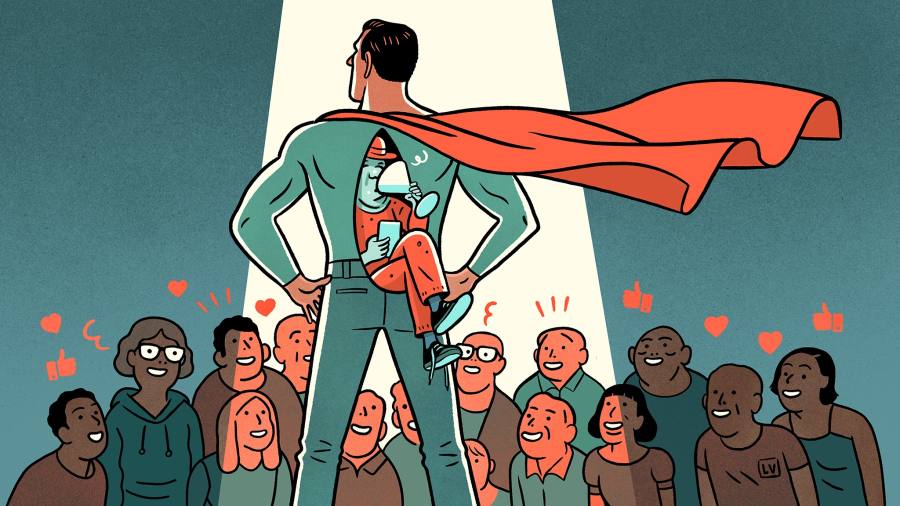[ad_1]
There is a perfect moment towards the end of 1982’s My Favourite Year when the youthful protagonist confronts his all-too-flawed movie idol, who is attempting to explain that in real life he is not the hero he portrays. “Don’t tell me this is you, life-size,†says the youngster in the film. “I can’t use you life-size.â€
Of course, the fan knows he is really only an actor but the movie hero fulfils a need and even offers a sense of moral guidance. So the sight of him reduced to reality is not merely a shock; it is a diminution of the fan’s own sense of self.
The film came to mind last week when I read the pay-off to a new book on anti-Semitism. The writer, David Baddiel, describes his feelings when one of his boyhood TV heroes blithely tweeted dismissing the anti-Semitism row engulfing Jeremy Corbyn. Reflecting on how much he had loved a character played by the actor, Baddiel notes that, on seeing the tweet, “a tiny part of me diedâ€. As a performer himself, Baddiel realises he should know better but it still stings.
It is completely preposterous and I related to it utterly. I remember my wife’s similar emotions at Mel Gibson’s anti-Semitic rant, and the letdown when a performer whose work I like turned out to be a 5G conspiracy theorist. My response was absurd. He’s an actor, so why does that mean he can’t also be a pillock?
Actors are paid to be someone else. We know little about their true selves really, so why are we disappointed when they fail to meet our sense of them? We know they are performers and yet somehow feel that the roles they play give us an insight into their true personality. What is this nonsense?
Heroes are always tricky. Even real ones — as opposed to movie idols — have flaws. But at least real-world heroes have done the thing that created the adulation. They did actually lead the fight for civil rights, conquer Everest or whatever. Actors by definition have not done the thing we respond to.
Nor are they like other creatives. We can admire a poet or artist without needing to like them, and yet actors engender a different emotional connection. We believe in them as their character. Surely no one who has watched Alien can doubt that Sigourney Weaver kicks ass.
So it is a blow if they turn out not to be as billed. We feel tricked. It is like discovering that Vin Diesel has joined the Greens or that Indiana Jones supports Chelsea.
We know they are not their roles, but the characters we care about take on a reality and can be hard to disentangle from the person who plays them.
This may also be why there is often resentment at actors getting involved in political causes, especially ones we do not share. Is it because we need them to be a canvas we colour in?
Or is it simply that the characters we love need to be the people we expect? Some years back, when The West Wing was at its peak, I was invited to a screening party for the new series. This was pretty much Westminster’s favourite show at the time and politicos were there in force. It took on a reality of a kind.
For days after, the prime minister’s spokesman adopted a phrase used by the fictional press secretary. Then the term “process story†— sprinkled liberally throughout the episode — started to appear in news reports. The concept was not new but the phrase was. It is hard not to believe all those there wished they were these cool US political operators.
As the canapés dwindled, a group of us was beckoned to come and meet one of the stars, who had travelled over for the event. He was very affable but we quickly ran out of things to say. He simply could not match our interest in the show. The guy we wanted to meet was his character. We wanted to meet a smart, wisecracking senior White House staffer, so a nice guy with no insights into American politics was destined to disappoint.
Our response was silly. Were we surprised? Or was it just the sudden realisation that we couldn’t use him, life-size?
Follow Robert on Twitter @robertshrimsley and email him at robert.shrimsley@ft.com
Follow @FTMag on Twitter to find out about our latest stories first. Listen to our podcast, Culture Call, where FT editors and special guests discuss life and art in the time of coronavirus. Subscribe on Apple, Spotify, or wherever you listen.
[ad_2]
Source link





